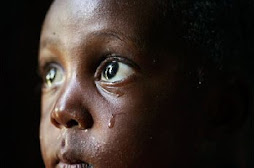HARARE — Zimbabwe's government claimed to be the victim of a terror campaign after an assassination bid against the air force chief, as the diplomatic heat was turned up on President Robert Mugabe.
With the death toll from a cholera epidemic now nearing 1,000, UN chief Ban Ki-moon delivered an apocalyptic assessment of the political and health crises afflicting a nation which was once seen as a post-colonial role model.
Former colonial power Britain said the 84-year-old Mugabe was in denial about the state of the southern African nation he has led since independence 28 years ago.
Officials said the attack on powerful air force chief Perrance Shiri, who was shot in the arm while driving towards his farm on Saturday night, was part of a larger campaign of terror being waged against senior figures.
"The attack on Air Marshal Shiri appears to be a build-up of terror attacks targeting high-profile persons, government officials, government establishments and public transportation systems," the state-run Herald newspaper quoted Home Affairs Minister Kembo Mohadi as saying.
Shiri -- a cousin of Mugabe's -- was leader of the Fifth Brigade which oversaw a brutal crackdown in southwestern Matabeleland in the early 1980s when up 20,000 people were killed.
The shooting comes in the wake of a series of bomb explosions at police stations in Harare and an attack on a bridge outside the capital, according to the daily.
Zimbabwean authorities said Monday they had "compelling evidence" that neighbouring Botswana was harbouring and giving material support to opposition-aligned rebels seeking to topple Mugabe.
The main opposition Movement for Democratic Change (MDC) has refuted the claims, saying it is convinced the government is preparing a state of emergency as an excuse to further disregard rule of law in the nation.
It also accused Mugabe's regime of "intensifying its terror campaign" against the opposition saying three of its councillors in Bindura were arrested ahead of a key ZANU-PF conference there later this week.
"The three were arrested on trumped up yet to be disclosed charges and are detained at Bindura Central Police Station," the MDC said in a statement.
Top officials from the ruling party met Tuesday to discuss the agenda of the conference, which state radio reported would include "restructuring of the party, the cholera outbreak, state of the economy, the all-inclusive government and the security threat to the country."
Australia strengthened its sanctions against Mugabe's regime Wednesday and urged him to step down to relieve the suffering of the southern African nation.
The government has added 75 individuals and four companies to a list of regime members and supporters facing financial and visa restrictions, Foreign Affairs Minister Stephen Smith said.
"The strengthened sanctions are a clear signal that the Australian government holds the brutal Mugabe regime and its closest supporters accountable for the tragedy occurring in Zimbabwe," Smith said in a statement. " Australian sanctions are carefully targeted against the regime to avoid harming the Zimbabwean people."
Diplomats said South Africa had blocked a bid by the United States on Monday night to have the UN Security Council adopt a non-binding statement condemning Mugabe for his failure to protect his people from the cholera outbreak.
Jacob Zuma , the head of the ruling ANC, said Tuesday South Africa had a "responsibility" to push Zimbabwe to resolve its crisis and complete the long-delayed implementation of a power-sharing accord.
"We are concerned that they are taking longer to finalise the agreement while the humanitarian situation is deteriorating," he said.
South Africa's former president Thabo Mbeki has been trying to mediate between Mugabe and MDC leader Morgan Tsvangirai since disputed elections in March. Although he did persuade the pair to sign a power-sharing agreement in September, it is still to be implemented amid disagreements over who should control key ministries.
In his briefing to the council, Ban said the UN was being effectively locked out of the efforts to resolve the impasse as "neither the (Harare) government nor the mediator welcomes a United Nations political role."
"The current cholera epidemic is only the most visible manifestation of a profound multi-sectoral crisis, encompassing food, agriculture, education, health, water, sanitation and HIV/AIDS," he added.
Subscribe to:
Post Comments (Atom)

No comments:
Post a Comment